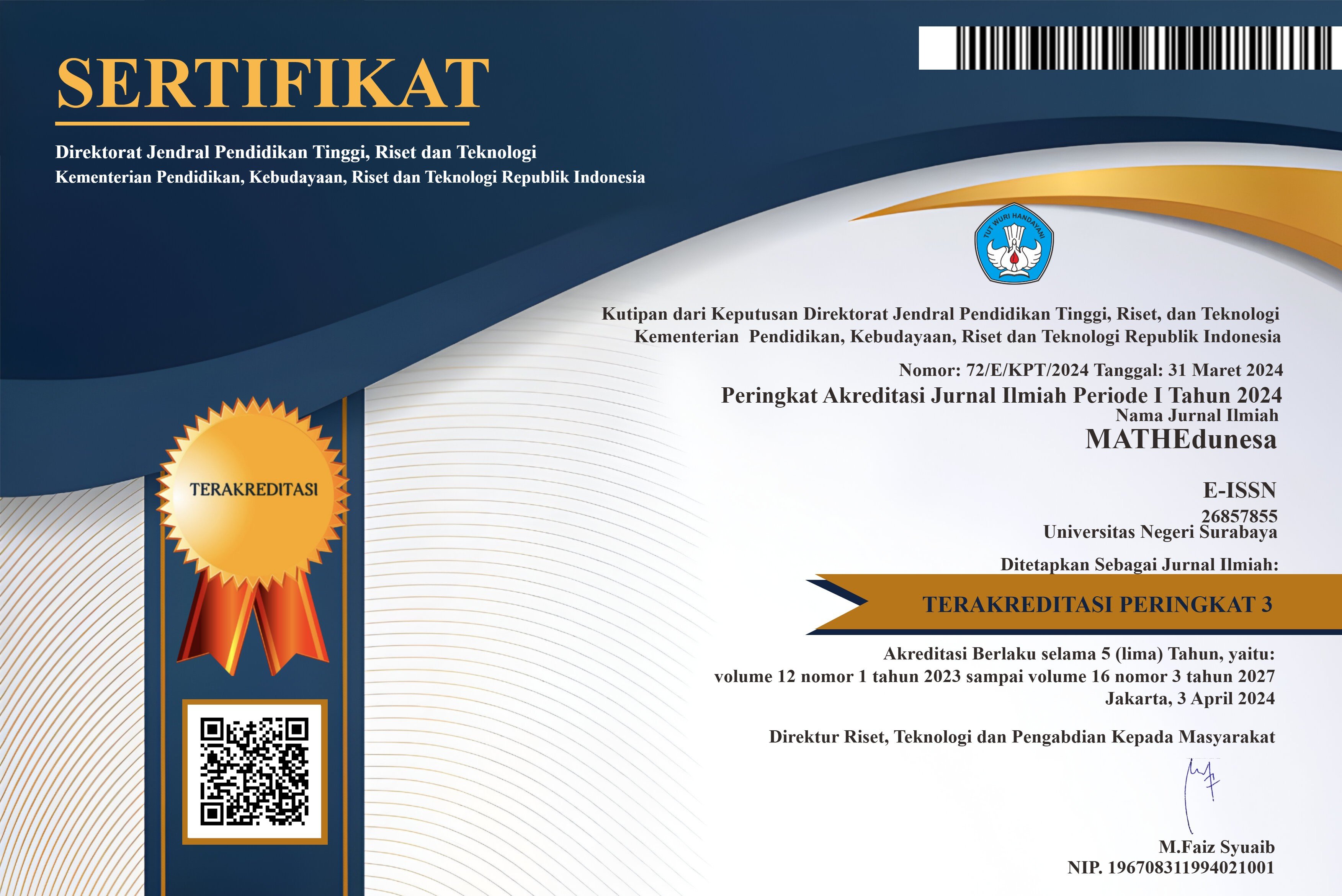Numerasi Siswa SMP dalam Menyelesaikan Soal AKM Ditinjau Berdasarkan Kemampuan Matematika
Abstract
Numeracy is needed as a focus of learning starting from the basic education level. Mastery of numeracy is needed so that students can understand and solve problems in life. This research aims to describe junior high school students' numeracy in solving AKM questions based on high, medium and low mathematical abilities. This research is descriptive in nature with a qualitative approach. The research subjects consisted of one subject each with high, medium and low mathematical abilities. Data collection techniques include mathematics ability tests, numeracy tests, and interviews. Data analysis techniques include data condensation, data presentation, and drawing conclusions. The research results show that students with high mathematical abilities can identify, access, and develop mathematical strategies appropriately, use notation and calculations correctly, and interpret, evaluate, and communicate results appropriately. Students with moderate mathematical abilities identify and access less information but are less detailed, strategize and model less accurately in notation and calculations, and conclude and communicate results well, but are less precise in evaluating. Students with low mathematical abilities are less detailed in identifying and explaining information, use trial and error strategies incorrectly, have misconceptions in calculations, and have difficulty interpreting, evaluating and communicating results.
Downloads
Downloads
Published
Issue
Section
 Abstract views: 127
,
Abstract views: 127
, PDF Downloads: 135
PDF Downloads: 135




